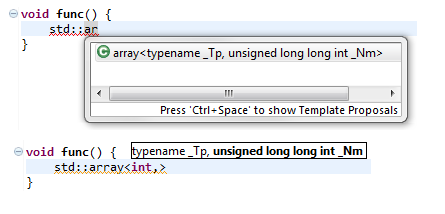N4310: Working Draft, Technical Specification for C++ Extensions for Parallelism -- Jared Hoberock
A new WG21 paper is available. If you are not a committee member, please use the comments section below or the std-proposals forum for public discussion.
Document number: N4310
Date: 2014-11-21
Working Draft, Technical Specification for C++ Extensions for Parallelism
by Jared Hoberock

 News about Cevelop, a C++ IDE for professional developers from the Institute for Software at HSR Hochschule für Technik:
News about Cevelop, a C++ IDE for professional developers from the Institute for Software at HSR Hochschule für Technik: